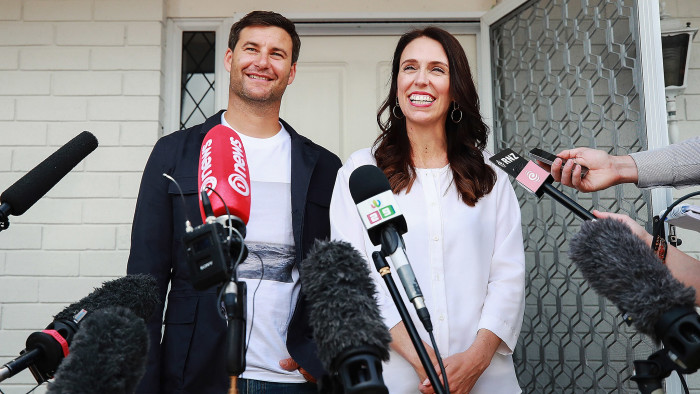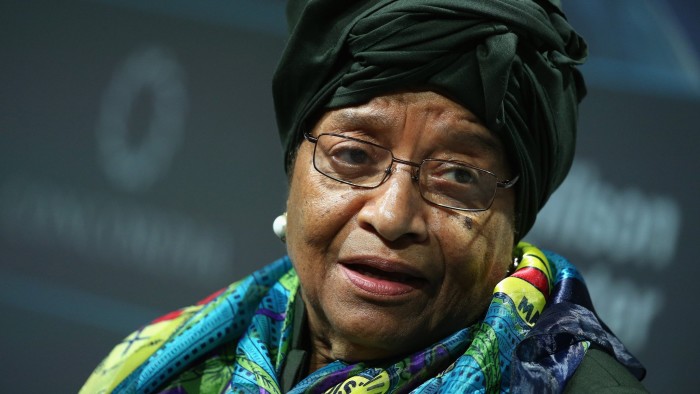Assemble your own role models from the best of others

Roula Khalaf, Editor of the FT, selects her favourite stories in this weekly newsletter.
I was fortunate at the beginning of my career to work in an office with an unusually high number of powerful women. They did nothing to support or encourage me. One, unforgettably, asked me to collect her dry cleaning. I declined.
These women were role models, however: they showed me what I did not wish to become.
All of us — male and female, young and old — model ourselves on those we see around us. The psychologist Albert Bandura, professor emeritus of psychology at Stanford University, is credited with social learning theory, which argues that we learn from those around us. Unlike the behaviourists who came before him, however, he insisted that we are active information processors. We do not just copy, we think about the behaviours that we see — and we select those that seem, for whatever reason, beneficial or attractive.
In my case, I did not think that treating office beginners like menials was inspiring or effective so I was — and remain — comfortable rejecting that model.
I have never lacked for positive role models — it is just that, for a long time, they were all men.
One boss believed that you never settle: do not give up on a piece of work if you can think of any way to improve it before the deadline. Another was impeccable in his memory of people’s names and back stories. Another colleague showed me that being blind to my own power was a stupid form of humility. A week spent recently with a chief executive whose generosity in opening doors for me has been a reminder that I could do a lot more for other people.
I wish I had known more women from whom to learn some of these lessons. But for much of my career, I saw few successful women anywhere. That was lonely and discouraging. That men routinely see a wide variety of successful male lives all around them is an advantage. It shows not only that success is possible, but also that it can take any number of forms and styles.
It is hard — and in some organisations impossible — for women to see success that looks like us, feels like us and speaks to our deepest desires. I did not take my inspiration from men because I wanted to, but because there was no one else around to watch.
Having so few women on whom to base an image of success forced me to do something more creative than just copying. I learnt from everyone, at work and outside it. The men I worked with did not just show me great examples. They also illuminated paths I did not want to take. The thugs and bullies I have seen in action — rejected; thoughtful egalitarian listeners — accepted.
Role models are not a wholesale offer — they require piecemeal negotiation in order to develop ourselves as unique, self-defined, determined to be not a copy but our own people.
That does not mean that towering examples of achievement do not matter. They do.
The election of female leaders such as Gro Harlem Brundtland (Norway), Ellen Johnson Sirleaf (Liberia) and Jacinda Ardern (New Zealand), who dare to be mothers while leading their countries, sends a powerful signal that the highest positions are achievable without sacrificing parenthood.

These figures stoke aspiration, encourage us not to give up, not to fall for the rhetoric that tells us we have to pay an unconscionably and uniquely high price for professional success.
Each has been subjected to exceptional levels of scrutiny (a burden female leaders have come to expect) and none has escaped unscathed. But their flaws should remind us that just because we are female carry does not imply an expectation of perfection. We will always be human.
Whether we like it or not, everyone is a role model of some kind — eyed by those around them for attributes to be adopted or rejected. That should put us all, men and women, on our mettle.
I live for the day when my son and daughter will be able to look around their workplaces and draw inspiration from the men and women they see among them, where neither will experience the lonely trepidation of trailblazers.
I do not, however, expect them to see anywhere the ideal that lets them off the hook of crafting who they are themselves. And I am confident that neither of them will send anyone out to run their personal errands.
The writer is an entrepreneur and the author of ‘Wilful Blindness’
Comments